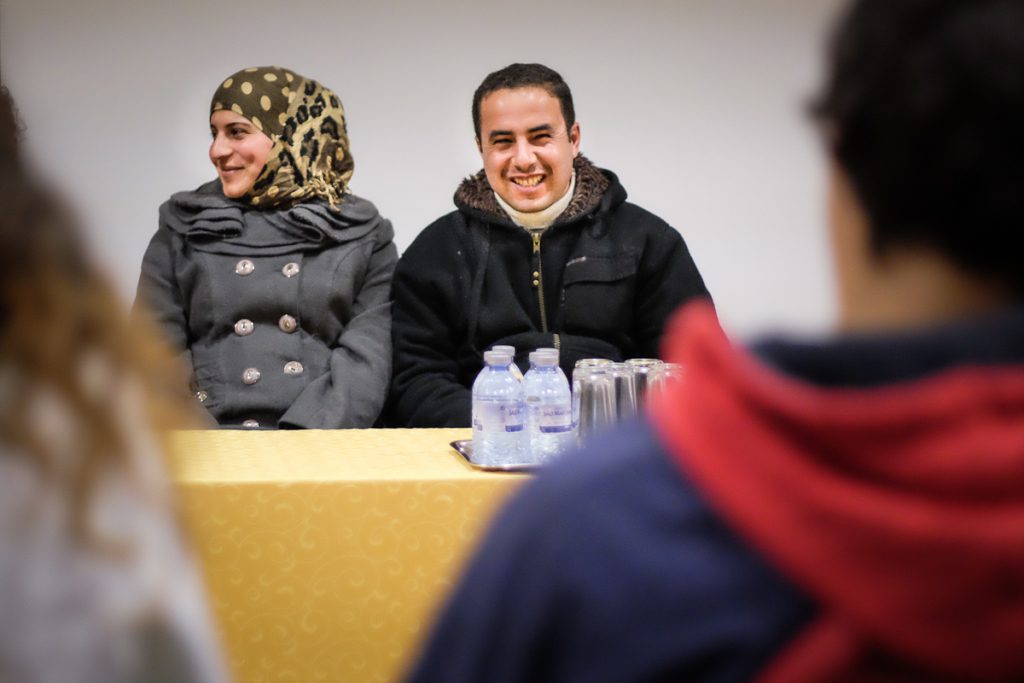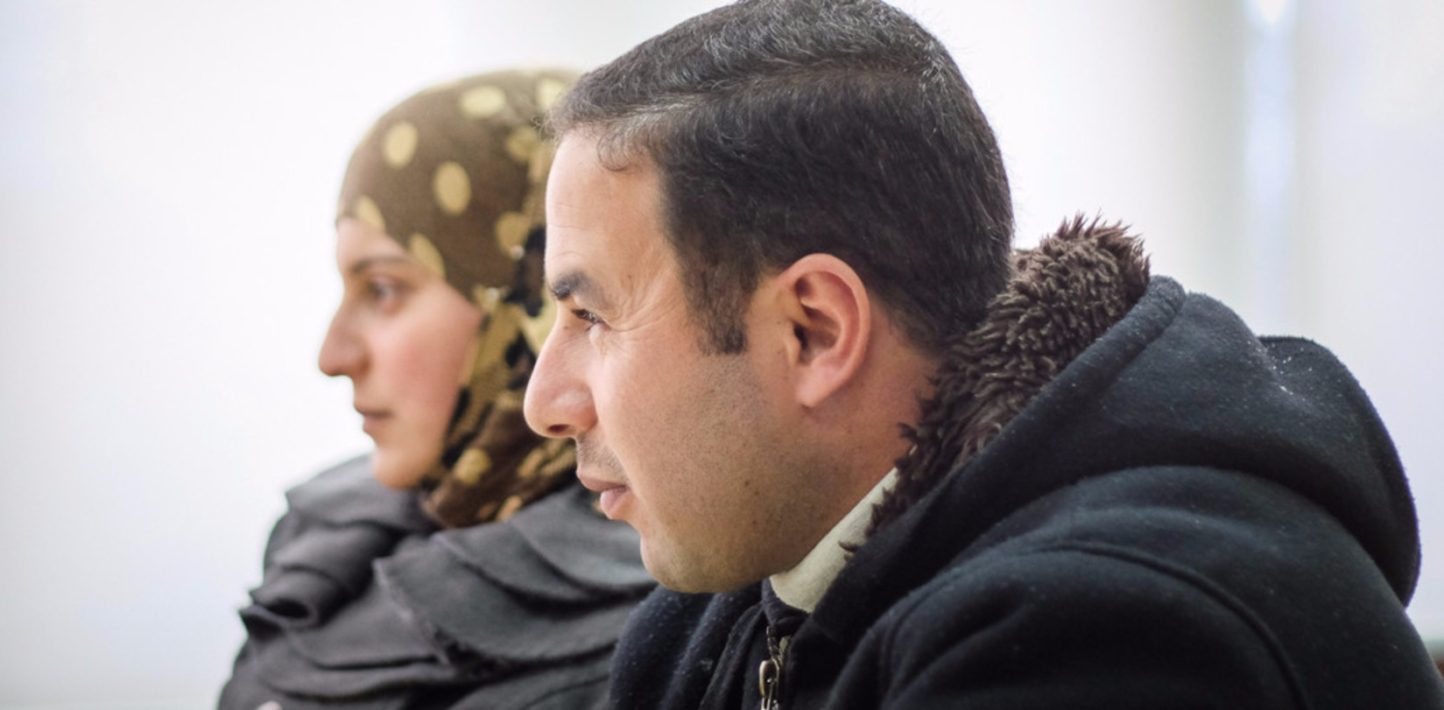How to present the challenges faced by refugees to a young audience so they can relate to someone else’s experience? If you’re a teacher and if you’ve ever considered starting a discussion on refugee rights with your class, you may have wondered this.
We found out how a Human Rights Friendly School in Portugal uses personal testimonies to draw a more complete image of what it’s like to be a refugee.
“We were settled, stable,” says Zacaria as he tells students about his life back in Syria.
Only a few months ago, he was living in the province of Deir el-Zawr with his wife Abir and their one-year old, but so much had happened since then it felt much longer. Back then, Zacaria used to work as an aircraft mechanic, Abir was studying languages and together they owned a mobile phone shop. That was life before.
In November as the situation in the region got worse, the couple decided to leave their home and find refuge abroad. With a small group of people, carrying a few necessities, they travelled through Turkey and crossed the Mediterranean to reach Greece.
“We waited for a month in Greece before we were informed that Portugal had accepted us. We didn’t know much about the country. We knew it was close to Morocco, and Spain of course. And that Syria was very far,” says Zacaria.
Now resettled in the city of Ferreira do Zêzere, the couple were invited to share their story at one of the six Human Rights Friendly Schoolsin the country so students can learn about the life they lived, before they became refugees in Europe.

Giving in-class debates a new narrative
Personal testimony based on eye-witness accounts and people’s experiences is at the centre of the method implemented by the Pedro Ferreiro Schoolto facilitate discussion on refugee rights and bring a new perspective to in-class debates.
Students better understand the risks other people may be forced to go through in a way that makes it possible for them to identify with someone else’s experience, remember it and visualise the difficulties of a reality sometimes very different from their own. The story of one person, told face to face is a powerful way to give a voice to an issue affecting many more.
Before meeting with Zacaria and Abir, students are presented with factual information so that they can form an opinion and develop a critical understanding of the difficulties faced by refugees in Europe. They are then divided into groups, each representing a different country at a simulated ‘Head of State Summit’, where representatives present arguments in favour or against receiving refugees, respond to the other side, and convince the other camp of the validity of their argument.
We can show images or present statistics about the refugee crisis, but when you listen to Zacaria and Abir, and hear them talking and sharing all the things they’ve had to go through to survive, this is much more powerful than all the images you can show
Luisa Marques, Human Rights Education Coordinator at Amnesty International Portugal
“I didn’t know the real meaning of the word ‘refugee’ that is actually a frightening reality. When I realized what was happening in the world and participated in the activity, I stopped to think about it, and I was perplexed about this issue. I didn’t imagine that those people with children, babies and even older ones, suffer so much and have to change their lives because of the war,” says 17 year old Sonya, after meeting Abir and Zacaria.
For Luisa Marques, Human Rights Education Coordinator at Amnesty International Portugal, having individuals share their story has had a significant impact on the way young people perceive the situation of refugees: “Only once you get the real picture, can you build an opinion about it: this is the message we’ve tried to communicate to students with this approach. We can show images or present statistics about the refugee crisis, but when you listen to Zacaria and Abir, when you hear them talking and sharing all the things they’ve had to go through to survive, this is much more powerful than all the images you can show”.


